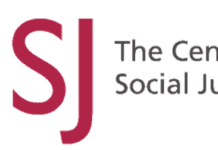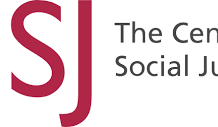- 1.3m households struggling to pay
- Local authority use of bailiffs often reduces chance of repayment
- Bailiffs should have statutory oversight
Some 1.3 million households are struggling to pay their bills and many of these are families on the lowest incomes.
They face harsh enforcement measures imposed by town halls, carried out by bailiffs, plus the threat of imprisonment, the report from the Centre for Social Justice (CSJ) reveals.
The CSJ points to a widening divide between mainstream society and the poorest 10 per cent of the population. Most households – about 95 per cent – can just about cope with their local taxes, but the remainder are often in desperate straits with hardly any money left after paying for their housing, food and energy bills. The average amount of Council Tax owed by those approaching debt advice charities has more than doubled in the past 10 years, from £756 in 2013 to £1,726 in 2023 (latest figures available).
The new report, Still Collecting Dust: Ensuring fairness in council tax collection, calls for a smarter and longer-term approach to collecting arrears for the tax – which generates £47 billion a year for the State – with a clearer distinction being made between those who cannot pay because of a lack of money and those who wilfully refuse to pay.
The latter should be pursued for non-payment but those facing genuine hardship should be helped with tailored repayment terms and advice on how to apply for the existing official scheme offering reductions on bills for those facing financial hardship. The report argues that this will result in higher collection rates by reducing the need for bailiff action, which makes debt harder to deal with.
The latest government data shows that where Local Authorities instructed civil enforcement agents (another term for bailiffs) between 2018 and 2022, the proportion of cases that settled after being paid in full fell from 21% to 15%. Joint research by the CSJ and the Money Advice Trust published in the report shows that enforcement agents were instructed to collect council tax 1.3 million times in 2022/23.
The report also calls for better oversight of the bailiff industry by putting the Enforcement Conduct Board, a voluntary oversight body set up by the debt advice and enforcement industry in 2021, on a statutory footing when the Ministry of Justice reviews the policy in November 2024. The vulnerable nature of the households who fall behind, the report argues, means they should have more practical recourse to protection where the collection process goes wrong.
The report comes after claims by Chancellor Rachel Reeves that the previous Conservative government had left a £22 billion black hole in the public finances, and a number of local authorities teetering on the edge of financial viability. Better collection of council tax arrears would ease pressure on local government finances and sustain local public services.
In light of speculation about increases in council tax, it shows that the introduction of minimum payments – which requires all households to pay at least part of their bill – increases receipts but reduces overall collection indicating an inability to pay for some families. Further increases in tax for these families will worsen their situation and make repayment less likely.
The report urges a relaxation of existing rules and the amendment of the Local Government Finance Act 1992 to end the requirement to pay a full annual bill after one missed payment. Instead, local authorities should be explicitly allowed to redistribute missed payments prior to moving to a liability order.
The report declares:
“We find that households who fall behind on their council tax are significantly more likely to be on a low income and show signs of deprivation.
“We find that lower council tax collection rates are significantly correlated with income deprivation. We also find that higher enforcement use is correlated with income deprivation.
“Debt collection is an important function of government, but where households are clearly vulnerable, they should be treated sensitively to enable them repay.
“But the structure of our collections system incentivises against this by providing opportunities for local authorities to quickly advance to enforcement (action by bailiffs).”
The report illustrates the financial pressures on low income families – those most likely to be passed to enforcement. They can have as little as £150 a month to spend after meeting essential costs.
Local authorities should be encouraged to pursue a non-invasive means of collection in the first instance, either by requiring the pursuit of a non-invasive collection method first or removing the need for a liability order for an attachment of earnings, allowances, and benefits. Crucially, the government should remove the sanction of imprisonment as a punishment for nonpayment from legislation. While it is rarely used in practice, almost 10,000 people have been given suspended commitment orders – a custodial sentence where the offender does not go to prison – since April 2009, and the threat of imprisonment throughout the collection process only makes debts harder to handle.
Matthew Greenwood, Head of Debt at the Centre for Social Justice, said:
“The further steep rise in council tax arrears to a historic high of £6 is yet more evidence that in many cases, the process of collection is failing local authorities and tax payers alike.
“Some people won’t pay their council tax even though they have the money and they should face the full force of the law. But our evidence shows that the majority of non-payers are unable to meet their commitments and the often harsh repayment methods used by many local authorities are making repayment rates worse, not better.
“Adopting a more proportionate collection system would drive up the amount of money brought in by councils in the long term. Enforcement is an invasive procedure by its nature and putting the Enforcement Conduct Board on a statutory footing would ensure that vulnerable households have practical recourse to protection should things go wrong.”

| [donate]
| Help keep news FREE for our readersSupporting your local community newspaper/online news outlet is crucial now more than ever. If you believe in independent journalism,then consider making a valuable contribution by making a one-time or monthly donation. We operate in rural areas where providing unbiased news can be challenging. |



















